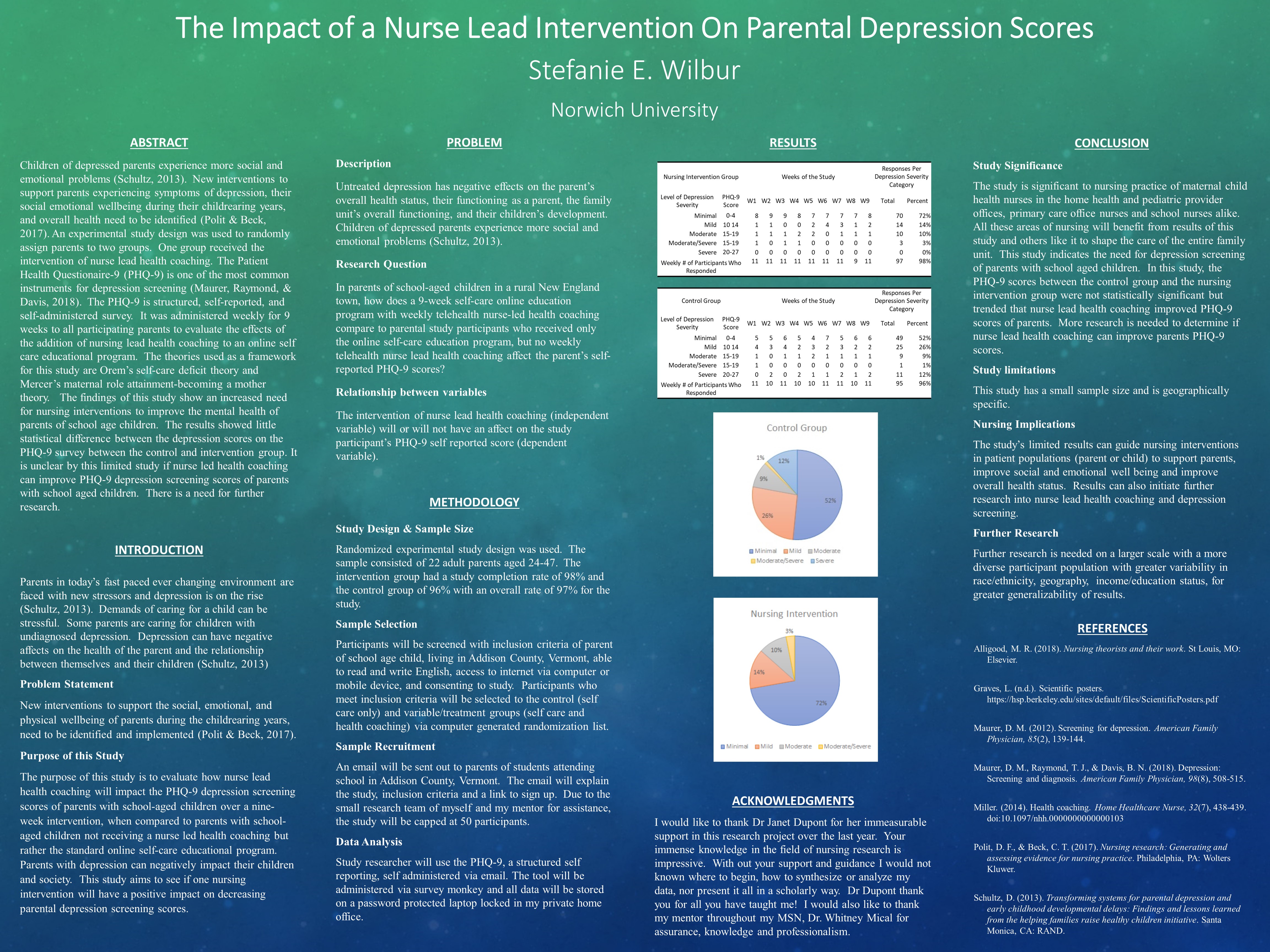The Impact of a Nurse Lead Intervention On Parental Depression Scores
Children of depressed parents experience more social and emotional problems (Schultz, 2013). New interventions to support parents experiencing symptoms of depression, their social emotional wellbeing during their childrearing years, and overall health need to be identified (Polit & Beck, 2017). An experimental study design was used to randomly assign parents to two groups. One group received the intervention of nurse lead health coaching. The Patient Health Questionnaire-9 (PHQ-9) is one of the most common instruments for depression screening (Maurer, Raymond, & Davis, 2018). The PHQ-9 is structured, self-reported, and self-administered survey. It was administered weekly for 9 weeks to all participating parents to evaluate the effects of the addition of nursing lead health coaching to an online self care educational program. The theories used as a framework for this study are Orem’s self-care deficit theory and Mercer’s maternal role attainment-becoming a mother theory. The findings of this study show an increased need for nursing interventions to improve the mental health of parents of school age children. The results showed little statistical difference between the depression scores on the PHQ-9 survey between the control and intervention group. It is unclear by this limited study if nurse led health coaching can improve PHQ-9 depression screening scores of parents with school aged children. There is a need for further research.
 CLOSE SIDEBAR
CLOSE SIDEBAR
